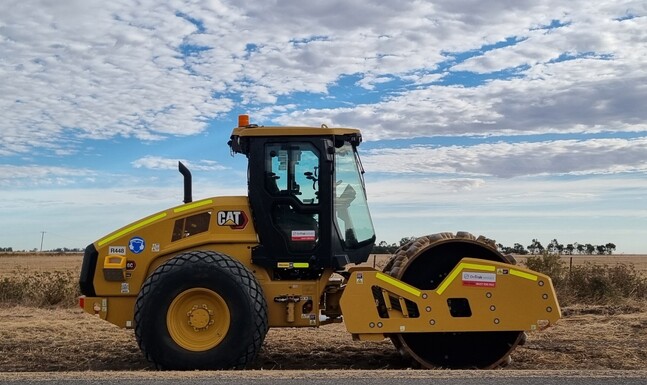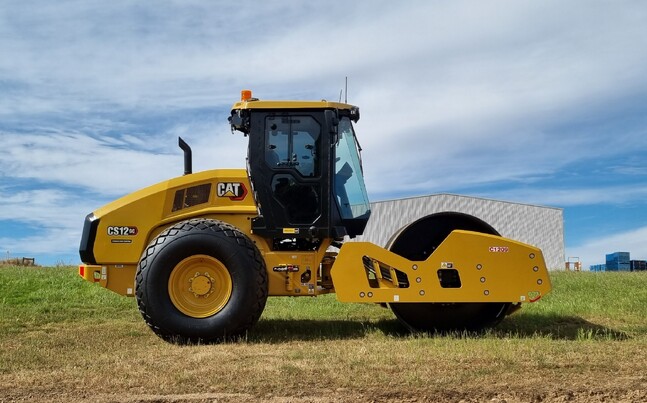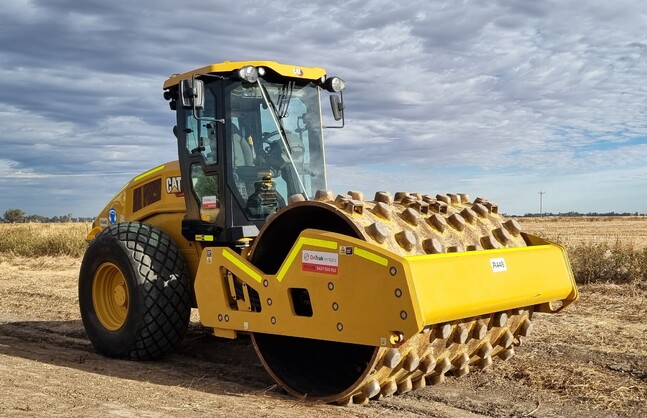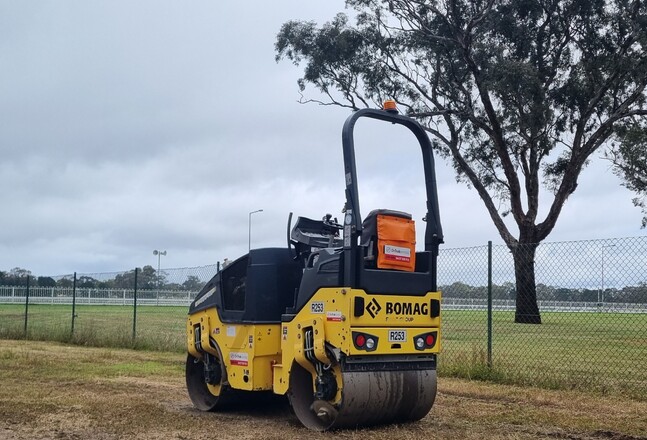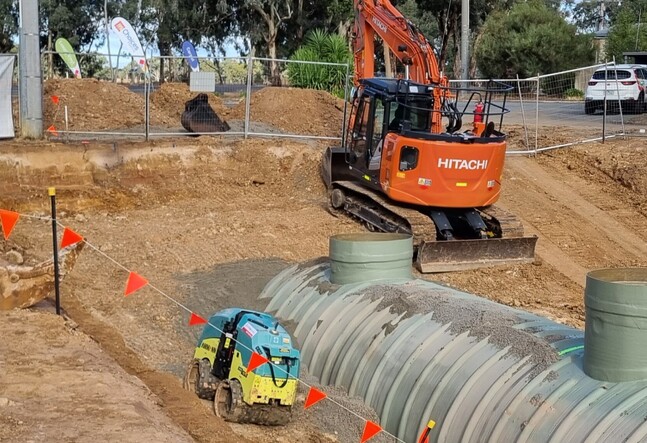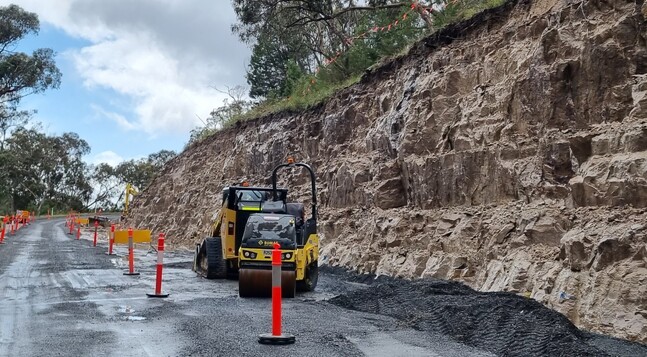Different types of rollers
Rollers are one of the most common types of earthmoving machinery, particularly in large construction projects such as car parks, road works and other civil construction projects. When an area of earth or new road needs to be heavily compacted for construction, the best machine for the job is a roller.
However, depending on the type of project you’re working on, there are a few different kinds of rollers to choose from. Let’s take a look at some of the most common types of rollers available.
Smooth Drum Rollers
Smooth drum rollers are also referred to as drum rollers. These rollers consist of large, smooth steel drums that impact, vibrate and compact materials such as sand, ballast and gravel. Typically, they come with either a single or double version. A single roller (as above) has one drum at the front and usually two wheels at the back (however, this configuration can sometimes be reversed, with the drum at the back). A double roller has one drum at the front and another at the rear.
Pad Foot Rollers
Pad foot rollers aren’t drastically different from smooth drum rollers, but they do have one major difference. Rather than the drum being completely smooth, it has serrated bumps that can compact materials deeper into the ground. These bumps provide more force at every point of contact. This creates a type of ‘kneading’ process, which is extremely effective, providing you’re using the machine on the right soil conditions.
Twin Drum Rollers
A twin drum roller also known as a double drum roller has one drum at the front and another at the rear.
Twin drum rollers are effective in the sense that they make compaction faster, with less compaction runs over the same area. The drawback is that without tyres, a double roller often lacks stability and traction. Single rollers are better for manoeuvring and have great traction, but don’t always have the force required for heavy-duty compaction work.
Multi-Wheel Rollers
Rather than a large steel drum or a drum with serrated protrusions, multi-wheel rollers have multiple tyres used for compacting earth. Many people favour them over drum and pad foot rollers, and they are used heavily in road construction.
Depending on the type of surface you’re working on, multi-wheel rollers offer more uniform compaction than steel rollers. Some think they provide better compaction than the previously discussed models. However, it really comes down to the surface you’re working on and the level of finish you actually require.
Trench Rollers
Trench rollers, also called multipurpose compactors, perform well in cohesive soil types, such as clays, that can be difficult to compact. They are able overcome the high moisture content in clays through their extreme compaction energy and the kneading effect of their padfoot drums. Trench rollers are mostly remote controlled and perform well in tight spaces.
Tips for choosing the right roller for your project!
Choosing the right roller for your application can be a daunting task. We have put together a few tips to help you make an informed decision:
Consider the surface: Understanding which rollers are best for different surfaces and ground types is critical for the successful completion of your project.
The type of project: Smooth drum rollers are better for things like driveways and building foundations. Twin drum rollers should be considered for larger areas like car parks. Pad foot roller hire is required when the surface is more clay-based and requires deeper compaction.
Compliance: Certain jobs need certain levels of compaction and finish, so always understand your responsibilities when choosing a roller and the desired compaction level on completion of the project.
